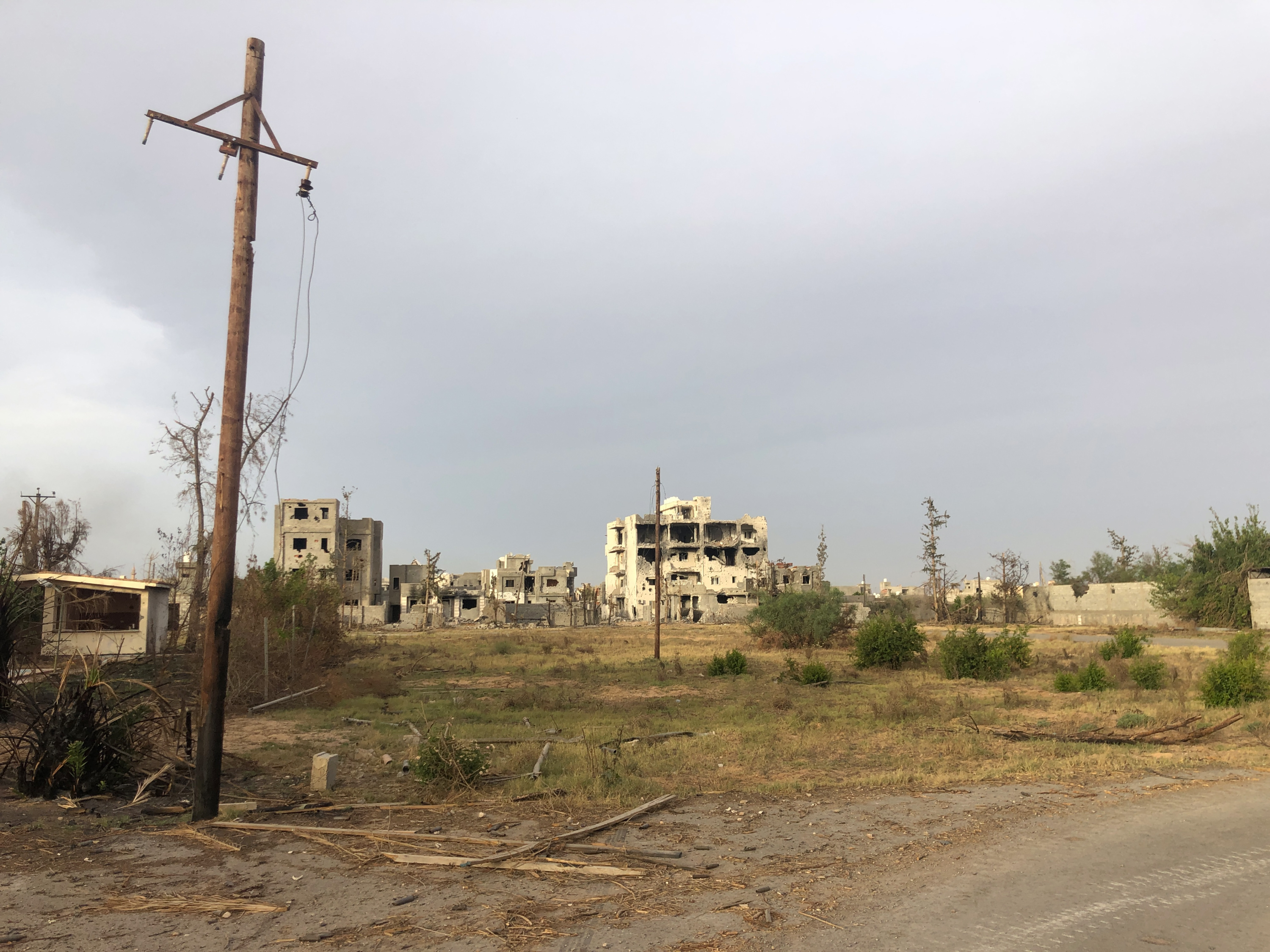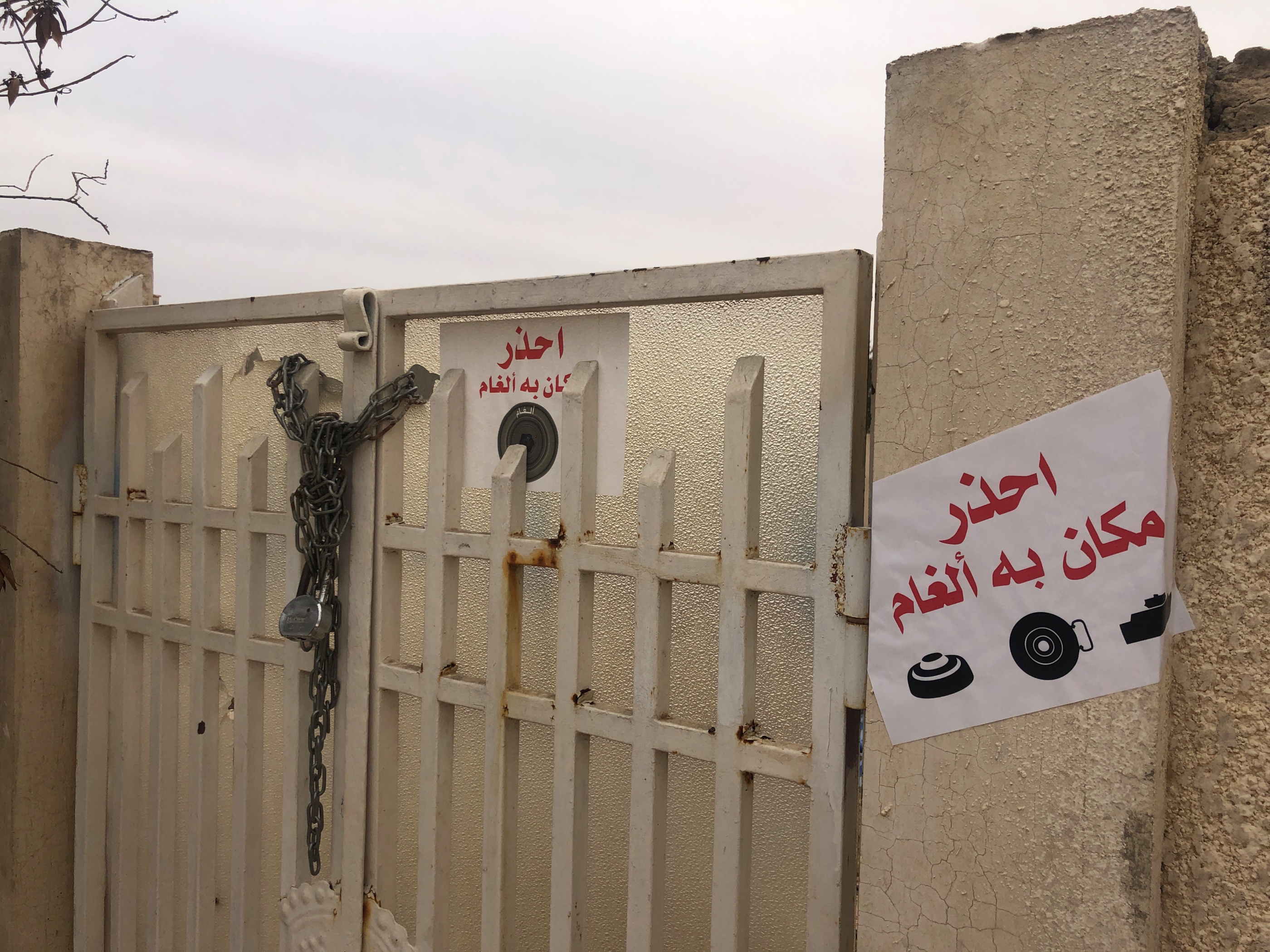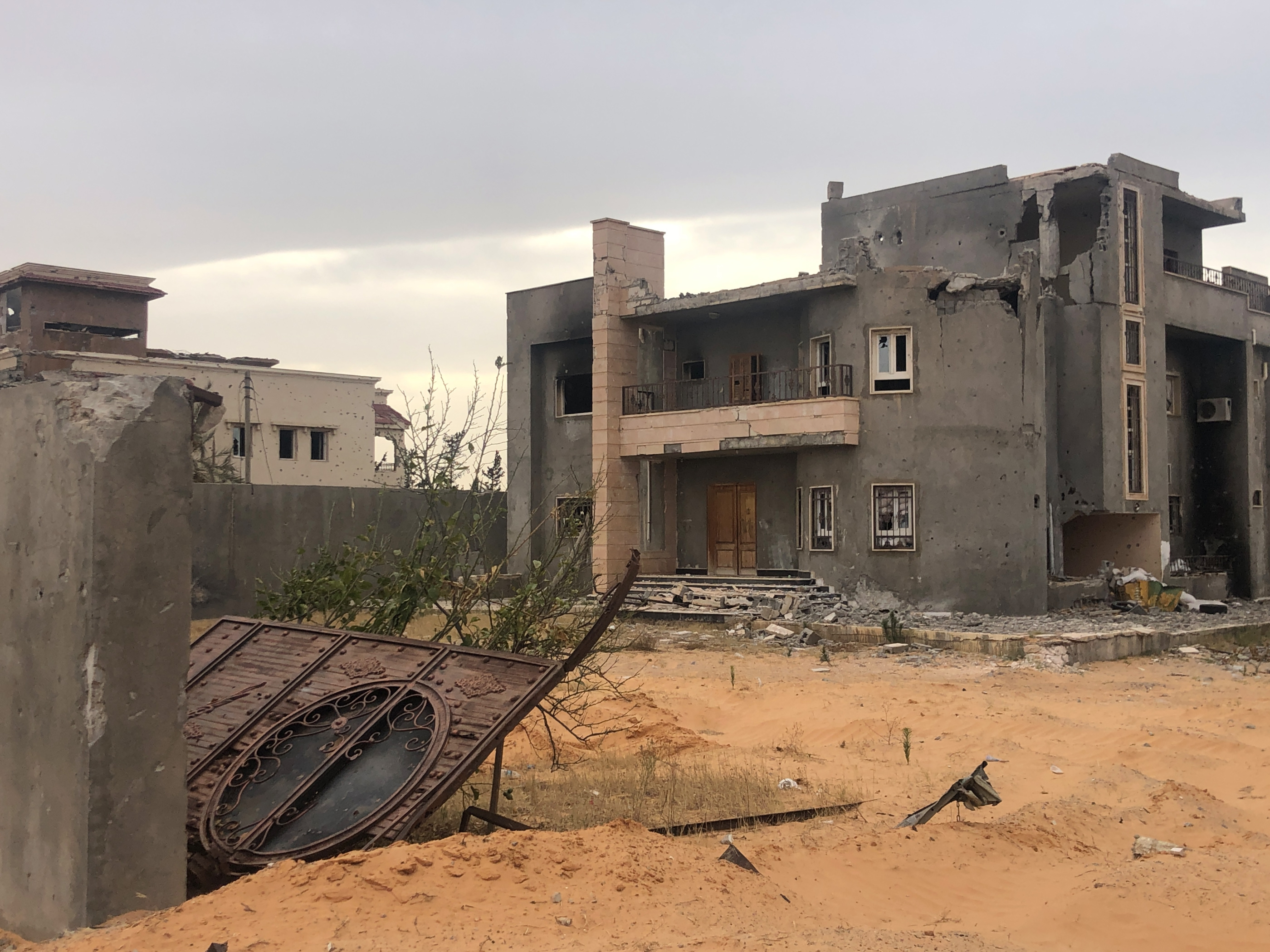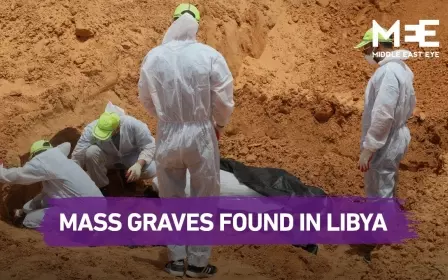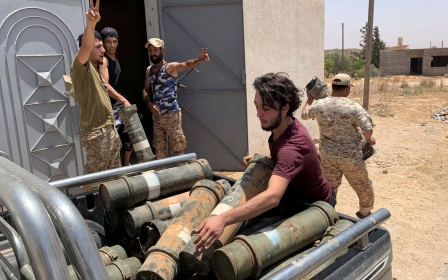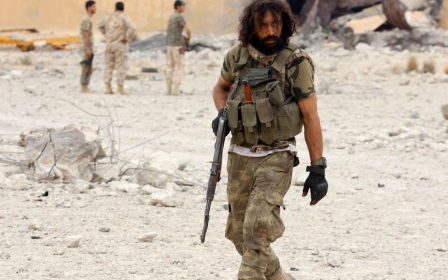Libyans navigate Haftar's landmines as they return to Tripoli homes
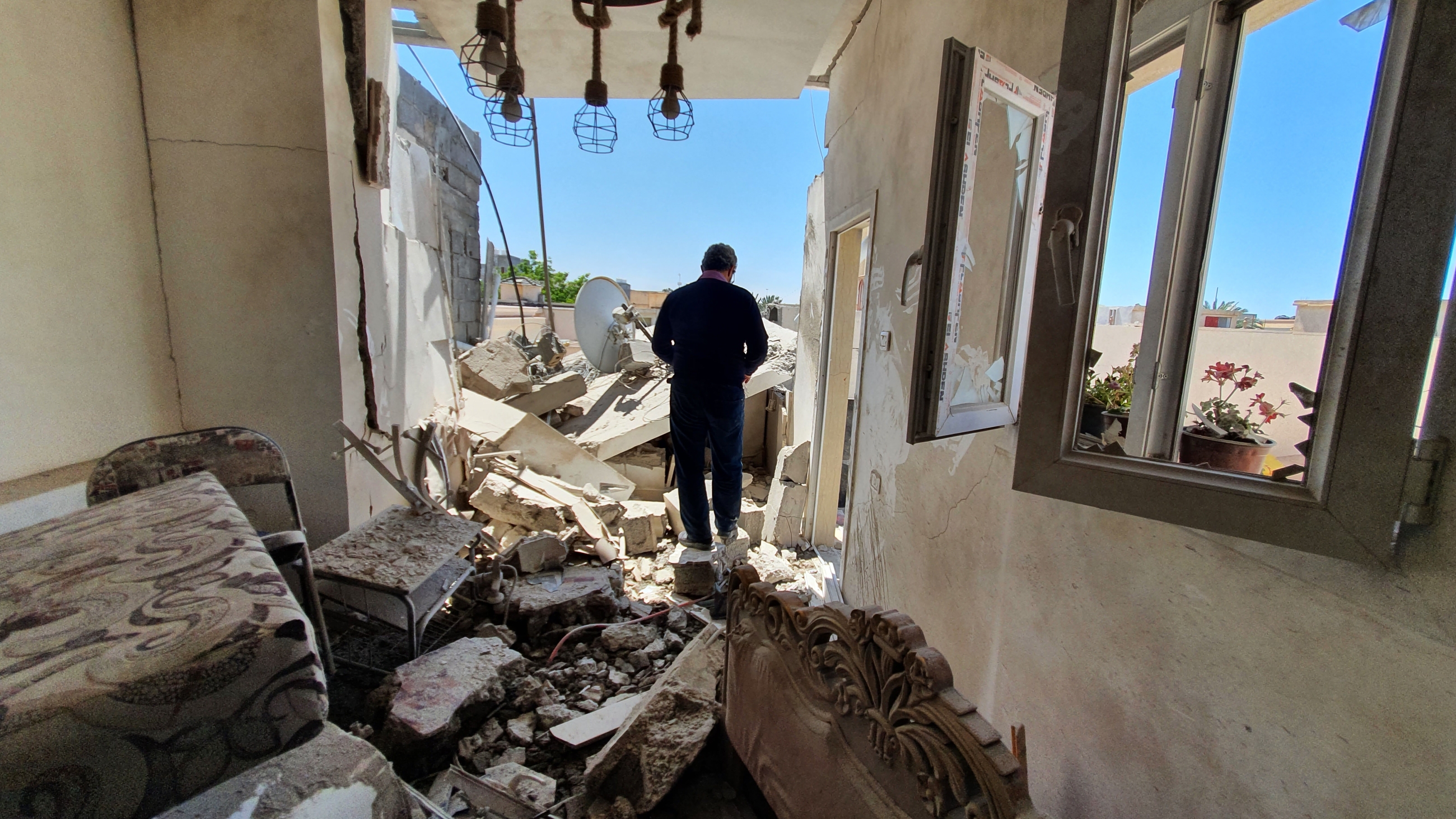
As the dust settles in northwest Libya after months of fierce fighting, residents displaced by battles between the internationally-recognised government and the Libyan National Army (LNA) have come back to landmines, damaged homes, and looted properties.
While the Government of National Accord (GNA) forces celebrate ending General Khalifa Haftar’s 14-month offensive to seize the capital, numerous videos circulating on social media have shown the enormous damage caused in areas south of Tripoli, including Ain Zara, al-Khala and Mashroa al-Hadba.
Ibtisam al-Arabi, a mother of two, and her family were forced to leave their house on the airport road on 10 October 2019 after missile attacks increased in the area.
“But we never thought it would be the last time we would see our home,” Arabi told Middle East Eye.
New MEE newsletter: Jerusalem Dispatch
Sign up to get the latest insights and analysis on Israel-Palestine, alongside Turkey Unpacked and other MEE newsletters
When the news that the fighting had stopped on the airport road came out, the family decided to go check on their house despite authorities warning people not to get close to the area.
“We were shocked by the horror we saw – havoc and destruction everywhere,” Arabi said.
Despite the chaotic scenes, Arabi’s husband did not stop driving until they reached their home.
“But there was no home. All we have had burned down,” she said.
“So tragic, the house that took us years to construct.”
Remnants
The United Nations has estimated that around half of the 400,000 people who have fled their homes over the past nine years were displaced since the start of Haftar's offensive last year.
Destroyed or partially damaged homes are not the only things waiting for the displaced upon their return to Ain Zara or Mashroa al-Hadba, districts south of Tripoli.
Landmines and explosive remnants have caused many serious injuries among people who decided to come back home, residents told MEE, against warnings by the interior ministry that called on displaced people not to return before the areas are secured and demined.
However, after reports of lootings in recently captured areas, people decided to take the risk to check on their properties and transport their possessions to safe places until they can return home.
After seven months of displacement, Murad al-Kumati and his family of seven returned home to the Salahuddin district and were surprised to find gym equipment inside the house and Russian words written on the inner walls.
Kumati believes that the space was occupied by Wagner Group mercenaries, a private military contractor group.
There wasn't much destruction in the family house but it was a mess, with a hole in one of the walls opening into the neighbouring house, according to Kumati.
“I found a mine in one of the rooms. I photographed it and showed it to security authorities. They ordered me not to return home until further notice,” Kumati told MEE.
Demands for the dismantling of military camps set up in residential complexes in south Tripoli and military headquarters established all over the area have recently increased on social media.
The south of Tripoli has been a popular area for many militias to set up posts and training camps over the years, due to its size and location at the entrance of the capital.
Military camps such as the Hamza, Yarmouk, al-Nakliya, and 7 April camps have witnessed many fierce battles since 2011, resulting in the continuous destruction of civilian homes and mass displacements.
Lootings
As northwestern Libyans try to navigate through the chaos left by 14 months of battles, Riyad al-Nakoua created a group on Facebook to collect donations for the restoration of destroyed houses.
The group has garnered a lot of attention and interaction from people who want to help.
Nakoua said the objective of the campaign is to gather financial donations, building materials, and free structural consultations for people to help them repair their homes.
The campaign also created youth groups to collect rubble and other residues of the fighting from houses, buildings and streets.
“The group has been widely embraced by citizens, and many craftsmen and shop owners have promised to provide their services for free for those who had their homes destroyed,” Nakoua said.
“Yesterday we started a cleaning campaign for the houses that had been cleared by interior ministry teams specialised in dismantling and removing mines.”
But with the massive scale of destroyed homes and streets around Tripoli, the road ahead for locals appears to be long, despite the initiatives planned to help people rebuild and resume normal lives.
Damage done to the electricity network in those areas, where most cables had been stolen, is likely to further postpone the return of residents or the resumption of any semblance of normality.
Last week, the United Nations said it received several reports of looting and destruction in Alasabaa and Tarhuna, two towns outside Tripoli that were recently retaken by GNA forces.
Hussein, a father of eight and a resident of Mashroa al-Hadba, a district south of Tripoli’s city centre, fled the clashes last July to his sister’s house, where the family stayed until their return at the end of May when Haftar’s forces withdrew.
“I went to check on my house and I was really shocked by how the area got looted - even the electrical wires were stolen,” he told MEE, adding that his house had some damage caused by missiles.
“I was surprised by the large number of televisions I found in my garden. I later found out that my house was a collection spot for the TVs that were stolen from all the houses around.”
Hussein also inspected his neighbour’s house, upon his request, and found that the garden had been used to collect and maintain generators.
“When I tried to enter his house, I saw a thin transparent wire attached to the door. I was really scared and left the whole area,” he said.
Hussein has realised that it will take many months for the electricity network to be repaired and the region demined and deemed safe for settling down.
Locals have called on the Tripoli-based Presidential Council in charge of the government to declare the region around the capital a disaster-stricken area and start serious efforts to rebuild it as soon as possible.
Middle East Eye delivers independent and unrivalled coverage and analysis of the Middle East, North Africa and beyond. To learn more about republishing this content and the associated fees, please fill out this form. More about MEE can be found here.


